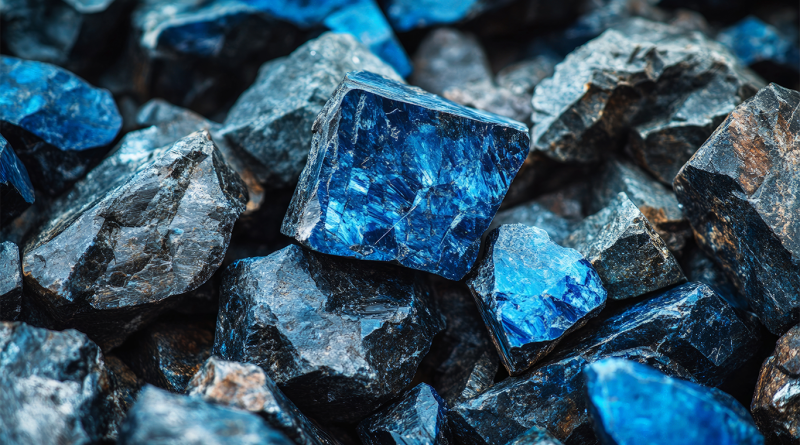Africa’s critical minerals at the heart of global electrification efforts
As the world shifts toward electrification and clean energy, Africa is emerging as a pivotal player. The demand for renewable energy sources, including solar, wind, and electric vehicles, has placed the continent at the center of the global conversation due to its wealth of critical minerals. These minerals, including cobalt, copper, lithium, and nickel, are essential for developing battery technologies, energy storage, and the power grids that drive the energy transition.
Africa’s mineral resources present a tremendous economic opportunity. With global targets for net-zero emissions, reliance on these minerals is expected to rise, positioning Africa as an essential part of the supply chain. However, this opportunity comes with challenges, particularly around responsible mining, supply chain security, and infrastructure development.
Key minerals driving global demand
Critical minerals are foundational to the clean energy transition. Among the most important are cobalt, lithium, copper, and nickel.
- Cobalt and lithium: Both minerals are crucial for electric vehicle batteries and energy storage solutions. The International Energy Agency (IEA) estimates that by 2040, demand for cobalt and lithium could increase by 70 and 40 times, respectively, driven largely by electric vehicles. The Democratic Republic of Congo leads in cobalt production, accounting for more than two-thirds of global supply.
- Copper and nickel: Copper is indispensable for building energy grids and renewable infrastructure. As the shift to electrification accelerates, copper demand is expected to more than double by 2040. Nickel, critical for batteries, could see demand grow by 140 times over the same period.
These minerals are key to technologies like solar panels, wind turbines, and battery storage systems, ensuring Africa’s resources remain central to the evolving global energy landscape.
Opportunities for Africa’s economic growth
The surge in demand for clean energy minerals presents Africa with a unique opportunity for economic growth and industrialization. As industries seek reliable sources of critical minerals, African nations are positioned to leverage their natural resources for substantial economic benefit. The mining sector, already a major contributor to many African economies, stands to expand further as demand for clean energy technologies grows.
Increased investment in infrastructure, particularly in resource-rich nations such as Zambia and the Democratic Republic of Congo, could lead to job creation and economic diversification. International investments and partnerships aimed at improving mining technologies and adhering to sustainable practices will be crucial to supporting long-term growth and environmental sustainability.
Additionally, Africa’s energy infrastructure can benefit from these developments. By focusing on renewable energy systems and improving energy storage capabilities, African nations can develop internal clean energy solutions while exporting minerals.
Challenges in Africa’s critical minerals sector
Despite the opportunities, Africa faces significant challenges in maximizing its mineral wealth. The environmental and ethical aspects of mining operations, particularly cobalt mining in the Democratic Republic of Congo, have raised concerns about labor practices and unsustainable extraction. Addressing these issues will be vital for meeting global demand for ethically sourced minerals.
Geopolitical risks and supply chain vulnerabilities also pose a threat to Africa’s potential. The concentration of production in a few key regions, such as cobalt production in the Democratic Republic of Congo, increases the risk of supply disruptions. Diversifying supply chains and securing infrastructure upgrades will be critical to mitigating these risks.
Additionally, many African nations face significant infrastructure challenges, including unreliable energy grids and underdeveloped transportation networks. Without substantial investments, the continent could struggle to meet growing global demand.
Building a diversified supply chain to mitigate risks
The concentration of production in certain African regions creates supply chain vulnerabilities that could disrupt global clean energy transitions. Over-reliance on countries like the Democratic Republic of Congo for cobalt or South Africa for platinum heightens risks. Political instability or regulatory changes could have far-reaching consequences.
To mitigate these risks, it is crucial to diversify production across more African countries, such as Mozambique, Namibia, and Zimbabwe, which have significant reserves of lithium and rare earth elements. Expanding regional cooperation on infrastructure and mining projects can strengthen supply chain security.
Fostering technological innovation in mineral processing
Africa can increase its share of value by investing in local mineral processing facilities and technological advancements. Currently, most African nations export raw minerals for processing elsewhere, limiting their economic gains. Developing mineral processing capabilities locally could lead to greater economic returns while reducing dependency on external processing hubs.
Technological innovations, such as automation in mining, cleaner extraction methods, and renewable energy-powered mining technologies, will be essential in advancing the sector. Collaboration with global tech firms and universities can accelerate Africa’s growth in this area.
Integrating Africa’s mineral strategy into global sustainability goals
As the world moves forward with clean energy goals, aligning Africa’s mineral strategy with global sustainability frameworks will be essential. The extraction of critical minerals like cobalt, lithium, and nickel plays a central role in powering renewable technologies, but the mining process itself can have significant environmental impacts if not managed responsibly. Aligning mining operations with sustainability goals, such as those outlined in the Paris Agreement, will be key for African nations to maintain their leadership in the mineral supply chain while safeguarding natural ecosystems.
Africa can benefit from partnerships with international bodies, non-governmental organizations, and global investors who are committed to sustainable development. Adopting green mining technologies, reducing carbon emissions, and promoting the circular economy through recycling and mineral reuse will be vital components of Africa’s long-term strategy.
International organizations like the IEA have already laid out recommendations for promoting sustainable mineral development, including improving transparency in supply chains, reducing environmental degradation, and promoting the responsible sourcing of minerals. With the appropriate progress, Africa can strengthen its position as a reliable and sustainable provider of the critical minerals necessary for the global clean energy transition.
Sources:
